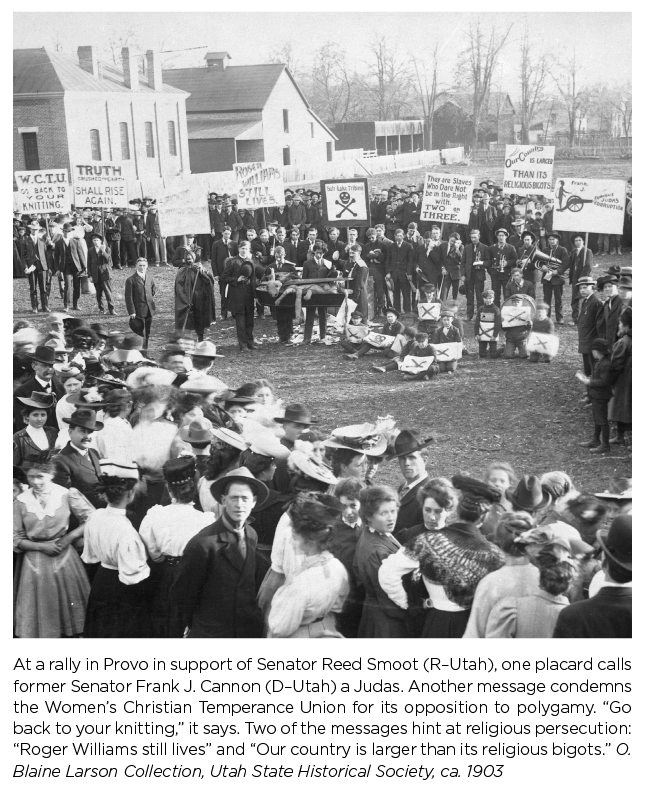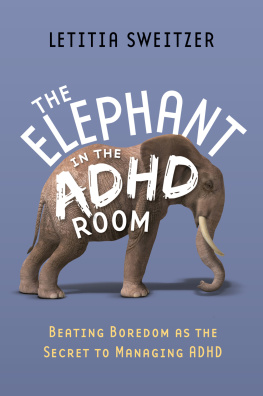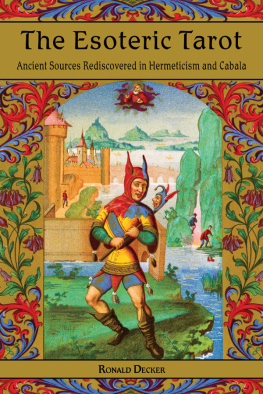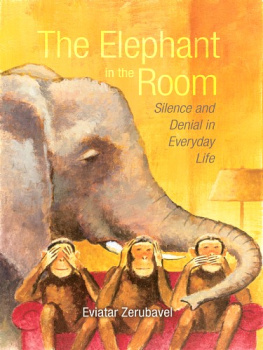Decker Rod - Utah Politics : The Elephant in the Room
Here you can read online Decker Rod - Utah Politics : The Elephant in the Room full text of the book (entire story) in english for free. Download pdf and epub, get meaning, cover and reviews about this ebook. year: 2019, publisher: Chicago Distribution Center (CDC Presses), genre: Politics. Description of the work, (preface) as well as reviews are available. Best literature library LitArk.com created for fans of good reading and offers a wide selection of genres:
Romance novel
Science fiction
Adventure
Detective
Science
History
Home and family
Prose
Art
Politics
Computer
Non-fiction
Religion
Business
Children
Humor
Choose a favorite category and find really read worthwhile books. Enjoy immersion in the world of imagination, feel the emotions of the characters or learn something new for yourself, make an fascinating discovery.

- Book:Utah Politics : The Elephant in the Room
- Author:
- Publisher:Chicago Distribution Center (CDC Presses)
- Genre:
- Year:2019
- Rating:3 / 5
- Favourites:Add to favourites
- Your mark:
- 60
- 1
- 2
- 3
- 4
- 5
Utah Politics : The Elephant in the Room: summary, description and annotation
We offer to read an annotation, description, summary or preface (depends on what the author of the book "Utah Politics : The Elephant in the Room" wrote himself). If you haven't found the necessary information about the book — write in the comments, we will try to find it.
Utah Politics : The Elephant in the Room — read online for free the complete book (whole text) full work
Below is the text of the book, divided by pages. System saving the place of the last page read, allows you to conveniently read the book "Utah Politics : The Elephant in the Room" online for free, without having to search again every time where you left off. Put a bookmark, and you can go to the page where you finished reading at any time.
Font size:
Interval:
Bookmark:

U t a h P o l i t i cs
The Elephant in the Room
Rod Decker
Signature Books | 2019 | Salt Lake City
For Ben, Megan, and Rachel
Cover design by Ron Stucki Photo of Rod Decker on back cover by Amanda Anderson Cooney
2019 Signature Books. All rights reserved. Signature Books is a registered trademark of Signature Books Publishing, LLC.
www.signaturebooks.com
Utah Politics: The Elephant in the Room was printed on acid-free paper and was composed, printed, and bound in the United States of America.
First edition | 2019
library of congress cataloging-in-publication data
Names:Decker, Rod, 1941 author.
Title:Utah politics : the elephant in the room / Rod Decker.
Description:Salt Lake City : Signature Books, 2019. | Includes bibliographical references and index.
Identifiers:LCCN 2019002573 | ISBN 9781560852728 (pbk. : alk. paper)
Subjects:LCSH: UtahPolitics and government.
Classification:LCC JK8416 .D43 2019 | DDC 320.9792dc23
LC record available at https://lccn.loc.gov/2019002573
Contents
Introduction
This Books Argument
This book comes from my career as a political reporter in Salt Lake City. When I began it, I thought I knew Utah politics. But as I proceeded, my ideas changed. I started out to write a book describing Utah politics and government, the kind of book a political scientist would write. But as I proceeded, my inclination was to tell stories from political history, for example, how Utah became so Republican (the elephant in the room), why federal ownership of land has been so controversial, and how social disorder rose and fell. The book divides into three parts. The first six chapters tell how politics changed in the 1970s, so that Utah became different from the rest of America. The next four show how land and climate have affected politics. And the last six describe a state government run by Republican members of the Church of Jesus Christ of Latter-day Saint, perpetually in power because of Utahs conservativism.
I argue that a key to understanding Utah politics is resistance by the Latter-day Saint Church and its members to American social change. Latter-day Saints choose differently from most Americans in matters of morals, sex, and families. They refused the sexual revolution that swept not only the United States but developed countries generally after World War II, as people married less and had more sex and more babies outside of marriage. Old laws designed to promote traditional families by forbidding abortion, pornography, and gay sex, among other things, were struck down by federal courts. Traditional families consisting of a married man and woman and their children declined. In opposition to these trends, Latter-day Saint leaders made traditional families and the old morality central to their preaching. Utah conducted a series of political quarrels as Latter-day Saints struggled unsuccessfully to save legal support for the old morality. Latter-day Saints turned Republican as the party stood more for the old morality and more against the expansion of federal power. In some surveys Latter-day Saints are the most Republican group in America. As the majority of Utah voters, they made Utah a Republican state. Most non-Mormons vote Democratic, and Utah has the most religiously divided electorate of any state.
For four decades now, Utahns have divided by religion, and the Latter-day Saint majority has elected Republicans, but it was not always so. From statehood in 1896 until the mid-1970s, Utah was politically ordinary, voting with national majorities, showing vigorous two-party competition, and alternating state power as voters swung with national parties in national elections. Utah entered into the American political mainstream just before statehood when Latter-day Saints gave up polygamy. As long as plural marriage was church doctrine, the territory had a religious-political division similar to the religious division that dominates Utah politics today. After the Church renounced polygamy, Latter-day Saints embraced the same Victorian family morals that were predominant in America, and for eighty years until the sexual revolution Latter-day Saints and Americans broadly agreed on both families and politics.
Family and moral differences affect aspects of Utah beyond politics. Though the old morality lost legal force, many Utahns, especially Latter-day Saints, continued to adhere to it. Utah is the most married state, the state where a child is most likely to live with two married parents, and the state with the lowest rate of children born out of wedlock. Those family patterns affect demography. Utah has the highest birth rate, the largest proportion of children, and the youngest population. That, in turn, influences incomes and poverty. Lone-mother families are disproportionately poor. With fewer lone-mother families, Utah has a lower poverty rate, especially for children, than the nation. Partly because of less poverty, Utah incomes are among the most equal of any state, and Utah is a bastion of the middle class. Utah has fewer social troubles, less violent crime, incarceration, and homelessness than America. Chapters 4, 5, and 6 show more specifically how Utah differs in demographics, economics, and public order, and traces some of those differences to family patterns.
Most of Utah is arid, empty, and federally owned, and those characteristics affect the continuing issues of defense, water, and federal land. All three issues changed in ways that reinforced Utah Republicanism. Utahns once welcomed federal defense projects. But in recent decades, they have regarded defense proposals with suspicion. Federal water projects once seemed chief hope for Utahs future, but now seem unimportant and disappointing. Beginning in the 1960s, the federal government tightened its management of federal land, and national environmental groups gained influence at the expense of locals who live near the land. With so much federal land in the state, many rural Utahns feel bullied by their landlord. Chapters 710 present a history of the changes and how they pushed Utah rightward.
Utahs opposition to the federal government grew as federal power grew. From 1960 to 2000, the federal budget expanded from 17 to 23 percent of national GDP, and new laws extended federal influence over civil rights, voting rights, workplace regulations, criminal law, the environment, and other issues.
The last six chapters describe Utah government and recount stories from institutional history, which holds some surprises. Take three examples: (1) Before they became the aggressive agent of the Latter-day-Saint-Republican majority, Utah lawmakers were weak and complained of how they were put upon by the other branches. (2) Though Utah now conducts exemplary public administration, Chapter 13 tells how the government used to run on spoils, disorganization, and private profit at public expense. And (3) Republicans tried to reform schools, but educators resisted, and outsmarted the politicians at every turn but one: the politicians beat educators when it came to keeping school budgets low.
Previous Utah political histories stop in the 1990s, That was true into the 1970s, but then Utah became different again. The new changes showed most in politics and demography, but they ramify throughout Utah society. Although economics had driven assimilation, religion and morals drove the new differences, as religion and polygamy had driven political differences in territorial times. The contemporary differences are much less important than the quarrels of Utah territory; nonetheless, they partly explain the past four decades of Utah politics. Religion, morals, and families have played a larger role in Utah history and politics than scholars have seen before.
Font size:
Interval:
Bookmark:
Similar books «Utah Politics : The Elephant in the Room»
Look at similar books to Utah Politics : The Elephant in the Room. We have selected literature similar in name and meaning in the hope of providing readers with more options to find new, interesting, not yet read works.
Discussion, reviews of the book Utah Politics : The Elephant in the Room and just readers' own opinions. Leave your comments, write what you think about the work, its meaning or the main characters. Specify what exactly you liked and what you didn't like, and why you think so.










